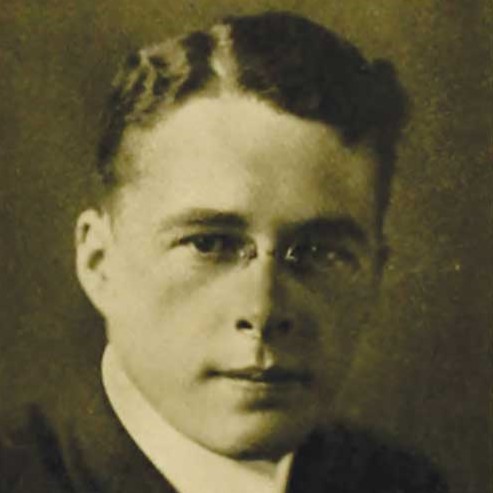Offer Yourself in Joyful Abandon
“How, then, shall we lay hold of that Life and Power, and live the life of prayer without ceasing? By quiet, persistent practice in turning of all our being, day and night, in prayer and inward worship and surrender, toward Him who calls in the depths of our souls. Mental habits of inward orientation must be established. An inner, secret turning to God can be made fairly steady, after weeks and months and years of practice and lapses and failures and returns. It is as simple an art as Brother Lawrence found it, but it may be long before we achieve any steadiness in the process.
Begin now as you read these words, as you sit in your chair, to offer your whole selves, utterly and in joyful abandon, in quiet, glad surrender to him who is within. In secret ejaculations of praise, turn in humble wonder to the Light, faint though it may be. Keep contact with the outer world of sense and meanings. Here is no discipline in absent-mindedness. Walk and talk and work and laugh with your friends. But behind the scenes, keep up the life of simple prayer and inward worship. Keep it up throughout the day. Let inward prayer be your last act before you fall asleep and the first act when you awake. And in time you will find, as did Brother Lawrence, that “those who have the gale of the Holy Spirit go forward even in sleep.
The first days and weeks and months are awkward and painful, but enormously rewarding. Awkward, because it takes constant vigilance and effort and reassertions of the will at the first level. Painful, because our lapses are so frequent, the intervals when we forget him so long. Rewarding, because we have begun to live. But these weeks and months and perhaps even years must be passed through before he gives us greater and easier stayedness upon himself.
Lapses and forgettings are so frequent. Our surroundings grow so exciting. Our occupations are so exacting. But when you catch yourself again, lose no time in self-recriminations, but breathe a silent prayer for forgiveness and begin again, just where you are. Offer this broken worship up to him and say: ‘This is what I am except thou aid me.’ Admit no discouragement, but ever return quietly to him and wait in his Presence.”
— Thomas R. Kelly, 1941
A Testament of Devotion

Reader Reflection
How can spiritual discipline enrich your life?
“It is so easy for me to think of all the ways I do not practice spiritual disciplines. And yet… The last couple of weeks have been emotionally difficult. And I notice (and appreciate) that for decades I have been developing a spiritual muscle I will call Possibility or Potential. (And we develop muscle only through practice.) This muscle points me away from complaining and toward the glimmer of opportunities, lessons, and spiritual growth. This muscle helps me stay grounded when faced with the unexpected. It encourages me to hold my judgement of others lightly, and look for ways to pray for them in their journey toward wholeness and faithfulness. It does not obscure my own pain and imperfection, but neither does it require that I be perfect or joyful to continue to be open to Possibility, to the movement of the Divine in my life."
Traci H.S., Philadelphia, PA, USA
“I am reminding myself through my day to be thankful for all moments, even the difficult ones. Especially the difficult ones. The moments of grief or confusion are invitations to calm my mind. Almost always, the load is lightened by the blessedness of whatever I am doing, wherever I am. The warm dishwater. The sunlight on the leaves of a tree. The first butterfly of spring."
Julie B., St. Thomas, Ontario, Canada
“My experience is that the Spiritual Disciplines help one to be more attentive and receptive to the the voice of Christ (Holy Spirit, etc.). For many of us, this is the primary goal of our walk in/with the Spirit. Currently I am trying to get back into the practice of daily writing in a journal, focusing on the presence of the Spirit in daily life, celebrating the day of small things. I need to forgive myself for lapses and for seemingly empty entries and lack of skill. As a youth, I learned to ski (downhill). We used to say to each other: 'If you're not falling down, you're not making any progress.' I fell a lot. I got better."
Joe S., Portland, OR, USA
Next Week’s Query
What spiritual exercises do you find nourishing?

This Week’s Messages
What Are You Practicing For?
Does Scripture Move You?
We Place Ourselves Where God Can Bless Us
Iconography as a Starting Point for Prayer
Quakers and Fasting
What Are You in the World For?









